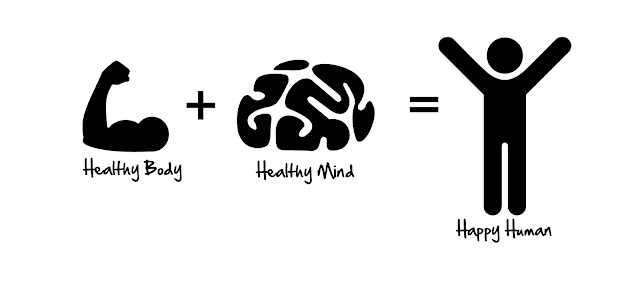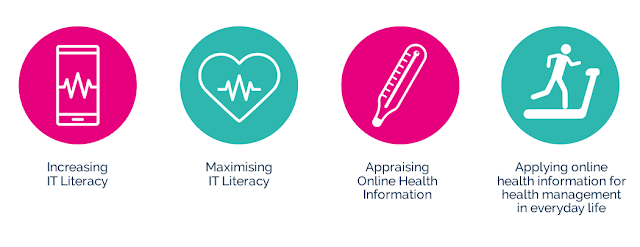reveal to Mind Over Pop Culture: Lars and the Real Girl is significant

Photo :Mind Over Pop Culture: Lars and the Real Girl
financial institution January 10, 2014 Lars and The Real Girl is a sweet movie that shows the power of true community integration. It s the story of a young man who needs help and finds it with his family, friends, co-workers and church. It s the kind of story that needs to be told more often in the face of the cynical stories told today. Lars and the Real Girl was made in 2007 and stars a pre-stardom Ryan Gosling as Lars. He s a withdrawn, awkward but sweet young man who lives in the separated garage of his brother and pregnant sister-in-law, who try to get him to be more social. One day, he brings home a Real Doll, a life-sized sex doll, whom he introduces as Bianca. It is clear that Lars believes Bianca is a real person. They go along with the delusion, and his therapist encourages them to continue to do so. His brother and sister-in-law encourage the rest of the community to go along as well, and out of love for Lars, they do so. Bianca soon becomes a member of the community, with friends, a job and activities without him. Lars continues to see his therapist, and over the course of the movie, becomes less dependent on her. Eventually, she dies, and Lars takes tentative new steps towards a new relationship. This movie really says something about what community support should look like, and how it can help. Lars therapist, played by Patricia Clarkson, tells his brother and sister-in-law this isn't necessarily a bad thing. What we call mental illness isn't always just an illness. It can be a communication; it can be a way to work something out. While a little simplistic, it s a nice change from the constant refrain that people with mental illnesses are always going to be wrong or broken in some way. Lars brother is concerned that the townspeople are going to laugh at Lars and his wife points that he s afraid they re going to laugh at him. I ve never seen a movie where often helpful but paternalistic attitudes towards family members with mental health conditions are laid out so obviously. Instead, his brother agrees to help with Bianca s integration into their community and is seen explaining the difference between a delusion (a wrongly held belief) and a hallucination (a fault in perception). The couple also explains the situation to Lars church group, who support him as well. One member feels that its idolatry, and another member points out that four of them have family members who have mental health conditions. That s another truth not often heard in mainstream movies. Lars is the main character of the movie, and it s his story. We learn that his mother died in childbirth, and he s afraid of having children because of it. That fear amplified into a fear of intimacy and even touch. He explains to his therapist that being touched hurts him physically, like minor frostbite. His older brother left home as soon as possible, leaving Lars with their bereaved father, which makes him feel guilty. All of these facts help explain Lars, but they don t fix him. He needs to deal with all of it himself, which he does over the course of the movie. His therapist does some aversion therapy for his touch issues (which don t seem to work at first, but eventually do) and discussing his life and fears help him begin to overcome them. Sometimes the discussions are simple, like the discussion he has with his brother about being an adult, but sometimes, they aren t simple. He gets into a fight with his sister-in-law when he thinks no one cares about him. Every person in this town bends over backward to make Bianca feel at home. Why do you think she has so many places to go and so much to do? Huh? Huh? Because of you! Because - all these people - love you! she yells at the angry Lars. In the end, it takes everyone s influence, support and honesty to help Lars move into recovery. At the end of the movie, he s not cured; he s just dealing with his intimacy issues, which is a realistic place to be. Lars and The Real Girl is a wonderful little movie that shows the power of community support. It shows what can be done to help someone with a mental health condition simply by supporting them. With some compassion, a bit of understanding and lots of honesty, it s truly possible to help someone cope with their mental health condition and move into recovery. This kind of story isn t seen very often, and the power of having a support system around you is often lost in movies about mental health conditions. It s a shame that it is because Lars and the Real Girl shows how powerful that story can be. I highly recommend it. Next week, we ll take a look at Shine , and the other side of family intervention. Have you seen Lars and the Real Girl ? What did you think? Tags: Mind Over Pop Culture Mental Health America Blog company
recommendations Mind Over Pop Culture: Lars and the Real Girl conventional

financial institution January 10, 2014 Lars and The Real Girl is a sweet movie that shows the power of true community integration. It s the story of a young man who needs help and finds it with his family, friends, co-workers and church. It s the kind of story that needs to be told more often in the face of the cynical stories told today. Lars and the Real Girl was made in 2007 and stars a pre-stardom Ryan Gosling as Lars. He s a withdrawn, awkward but sweet young man who lives in the separated garage of his brother and pregnant sister-in-law, who try to get him to be more social. One day, he brings home a Real Doll, a life-sized sex doll, whom he introduces as Bianca. It is clear that Lars believes Bianca is a real person. They go along with the delusion, and his therapist encourages them to continue to do so. His brother and sister-in-law encourage the rest of the community to go along as well, and out of love for Lars, they do so. Bianca soon becomes a member of the community, with friends, a job and activities without him. Lars continues to see his therapist, and over the course of the movie, becomes less dependent on her. Eventually, she dies, and Lars takes tentative new steps towards a new relationship. This movie really says something about what community support should look like, and how it can help. Lars therapist, played by Patricia Clarkson, tells his brother and sister-in-law this isn't necessarily a bad thing. What we call mental illness isn't always just an illness. It can be a communication; it can be a way to work something out. While a little simplistic, it s a nice change from the constant refrain that people with mental illnesses are always going to be wrong or broken in some way. Lars brother is concerned that the townspeople are going to laugh at Lars and his wife points that he s afraid they re going to laugh at him. I ve never seen a movie where often helpful but paternalistic attitudes towards family members with mental health conditions are laid out so obviously. Instead, his brother agrees to help with Bianca s integration into their community and is seen explaining the difference between a delusion (a wrongly held belief) and a hallucination (a fault in perception). The couple also explains the situation to Lars church group, who support him as well. One member feels that its idolatry, and another member points out that four of them have family members who have mental health conditions. That s another truth not often heard in mainstream movies. Lars is the main character of the movie, and it s his story. We learn that his mother died in childbirth, and he s afraid of having children because of it. That fear amplified into a fear of intimacy and even touch. He explains to his therapist that being touched hurts him physically, like minor frostbite. His older brother left home as soon as possible, leaving Lars with their bereaved father, which makes him feel guilty. All of these facts help explain Lars, but they don t fix him. He needs to deal with all of it himself, which he does over the course of the movie. His therapist does some aversion therapy for his touch issues (which don t seem to work at first, but eventually do) and discussing his life and fears help him begin to overcome them. Sometimes the discussions are simple, like the discussion he has with his brother about being an adult, but sometimes, they aren t simple. He gets into a fight with his sister-in-law when he thinks no one cares about him. Every person in this town bends over backward to make Bianca feel at home. Why do you think she has so many places to go and so much to do? Huh? Huh? Because of you! Because - all these people - love you! she yells at the angry Lars. In the end, it takes everyone s influence, support and honesty to help Lars move into recovery. At the end of the movie, he s not cured; he s just dealing with his intimacy issues, which is a realistic place to be. Lars and The Real Girl is a wonderful little movie that shows the power of community support. It shows what can be done to help someone with a mental health condition simply by supporting them. With some compassion, a bit of understanding and lots of honesty, it s truly possible to help someone cope with their mental health condition and move into recovery. This kind of story isn t seen very often, and the power of having a support system around you is often lost in movies about mental health conditions. It s a shame that it is because Lars and the Real Girl shows how powerful that story can be. I highly recommend it. Next week, we ll take a look at Shine , and the other side of family intervention. Have you seen Lars and the Real Girl ? What did you think? Tags: Mind Over Pop Culture Mental Health America Blog company
recommendations Mind Over Pop Culture: Lars and the Real Girl conventional


























